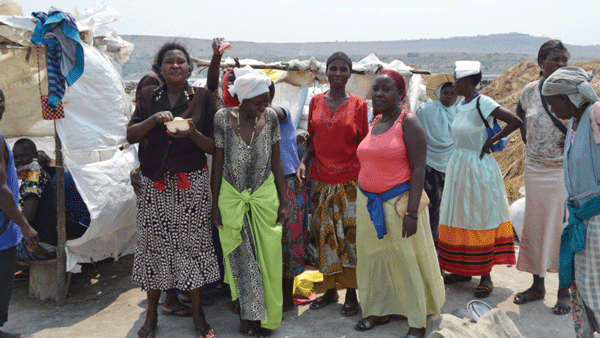
COVID-19 has intensified work, childcare and housework pressures.
Senior-level women are under significantly more pressure than their male counterparts.
Black women feel under-supported and impacted by racial violence.
One in four women are considering downshifting their careers or leaving the workforce entirely because of the impact of COVID-19, according to a new report.
“As many as two million women are considering taking a leave of absence or leaving the workforce altogether,” warns Women in the Workplace, the largest comprehensive study of the state of women in corporate America.
“Many employees are exhausted and burned out.
“Women in particular have been negatively impacted, and three groups are facing distinct challenges: mothers, senior-level women, and Black women.”
Mothers are significantly more likely than fathers to be thinking about downshifting their careers or leaving the workforce, with childcare responsibilities as a primary reason.
- Chamisa under fire over US$120K donation
- Mavhunga puts DeMbare into Chibuku quarterfinals
- Pension funds bet on Cabora Bassa oilfields
- Councils defy govt fire tender directive
Keep Reading
An Asian American woman and senior manager with two children aged one and five tells the study: “There were times when I said to my husband, ‘One of us is going to have to quit our job.’ And I remember thinking, ‘How come I’m the only one thinking about this, and my husband isn’t?’ I don’t think him leaving was ever in question.”
Mothers are also more than twice as likely as fathers to worry that they’ll be judged more harshly at work because of their caregiving responsibilities.
Companies risk losing women leaders
One working mother — a Vice-President with a three-year-old child — told the study’s authors: “I don’t have a sliver of time without a meeting from 8am until 6pm every single day.
“There’s no buffer to get a glass of water, go to the bathroom, check on my child.”
Senior-level women are significantly more likely than men at the same level to feel under pressure to work more and be “always on.” And they are 1,5 times more likely than senior-level men to think about downshifting their careers or leaving the workforce because of COVID-19.
Almost three in four cite burnout as a main reason.
Black women are less likely to feel supported at work during COVID-19
Black women are more than twice as likely as women overall to say the death of a loved one has been one of their biggest challenges during the COVID-19 pandemic.
Incidents of racial violence across the US are also exacting a heavy emotional toll.
But fewer than one in three Black women report that their manager has checked in on them in light of recent racial violence.
And only about a third say their manager has fostered an inclusive culture on their team.
“There was a real silence after George Floyd happened.
“And I felt like that silence ripped open a wound that I didn’t realise had been so deep,” one Black and Latina manager told the authors
How companies can help
Employers need to check whether productivity and performance expectations set before COVID-19 are still realistic, and help create work-life boundaries, says the report. For example, establishing set hours for meetings.
They should also raise awareness in the workplace about unconscious bias — such as challenging assumptions that a child playing in the background of a video call means less commitment to work.
Employees need to be aware of the full range of benefits available to them, such as mental health counselling.
Companies should share more regular updates on the state of the business and key decisions that affect employees’ work and lives.
How companies can support Black women
Make an explicit commitment to advancing and supporting Black women and communicate it to employees, along with a clear explanation of why it’s important.
“Many employees don’t realise that Black women are having a markedly worse experience at work,” the authors say.
“If employees understand this, they will be more likely to champion the Black women in their organisation.”
Companies also need to foster a culture in which Black women are fully valued and included.
Economists have dubbed the impact COVID-19 is having on women in work as a ‘shecession’.
For example, in August 2020, women’s labour supply was still 20% below the pre-recession levels of February 2020, whereas men’s labour supply was only 9% lower.
The World Economic Forum’s Global Gender Gap Report 2020, published in December 2019, highlighted the growing urgency for action, with gender parity still at least 99.5 years away.
Through its Platform for Shaping the new economy and society, the forum’s initiatives include closing the gender gap country accelerators and hardwiring gender parity into the future of work, a business commitment framework to ensure the new world of work is inclusive. With COVID-19 threatening to set back decades of progress on gender equality, this work is more urgent than ever.











